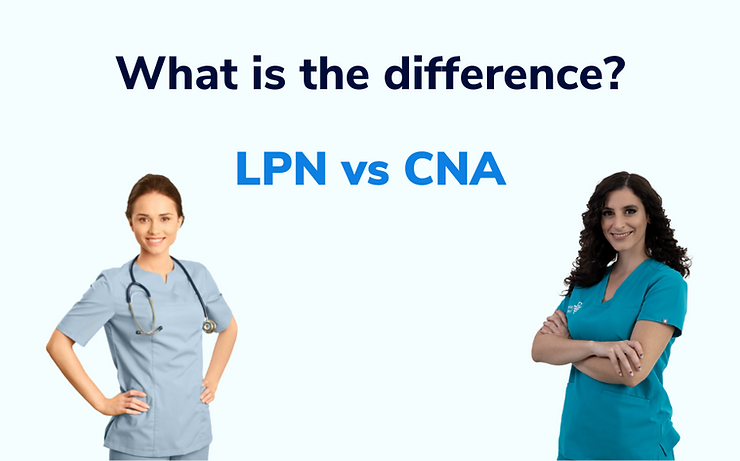To keep their licenses active, nurses are typically required to renew them once in a while. Because states have their own nursing laws, there is no set of universal renewal guidelines. The requirements you will be asked to submit will depend entirely on the state you live or work in. To make life easier for you, we have compiled a list of RN license renewal requirements by state, as of 2022. Keep in mind that these are always subject to change.For more detailed information, refer to the official State Board of Nursing websites linked in the states below.
Alabama: 24 Continuing Education (CE) contact hours from a state-approved provider. This can include 12 hours of independent study through your Continuing Education Units (CEUs). Must be fulfilled every two years, on even years. The only exception is if you applied between August 31 and December 31.
Alaska: Nurses must complete two of the following: 320 hours of nursing employment, 60 hours of unpaid professional nursing or 30 CE contact hours from a state-approved provider. Must be fulfilled every November 30th, in even years only.
Arizona: Nurses must complete one of the following: 960 hours of nursing practice in the last 5 years, completion of a board-accredited refresher course, graduation from a nursing program in the last 5 years or obtaining an advanced practice nursing degree over the last 5 years. Requirements must be fulfilled every 4 years.
Arkansas: Nurses must complete one of the following: 15 contact hours from accredited activities with an emphasis on practice, one college credit hour in nursing with at least a grade of C or better, or a nationally-recognized certification/recertification. This must be fulfilled every two years. If you are born in an odd-numbered year, you renew in even years and vice-versa.
California: To renew an RN license in California, you must fulfill 30 CE contact hours from a state-approved provider. If you are unsure of your license’s status, the state offers online RN license verification for CA nurses. RN license verification in California can be found here.
RN license renewal in California must be fulfilled every two years on your birthday.
Colorado: Renew every two years by September 30. There are no additional requirements.
Connecticut: Renew every year, on the first day of a nurse’s birth month. There are no additional requirements.
District of Columbia: Every two years, RNs must complete 30 CE contact hours from a state-approved provider. 3 hours are devoted to HIV/Aids while 2 will concern cultural sensitivity training for handling patients who identify as LGBTQ+.
Delaware: You must fulfill one of the following requirements for renewal: 1,000 practice hours over the last 5 years, 400 practice hours over 2 years, or a refresher course within the past 2 years AND 30 CE contact hours from a state-approved provider (which includes 3 on substance abuse.) Nurses have to meet these requirements every two years in odd-numbered years. Depending on when they got their certification, they must submit them on either February 28, September 30 or May 31.
Florida: 24 CE contact hours from a state-approved provider, which includes 2 hours on Florida’s nursing laws and 2 hours on human trafficking. RN license renewal in Florida is fulfilled every two years. This is waived for the first two years of first-time licensees who passed the exam.
Georgia: RNs must finish 30 CE contact hours from a state-approved provider. Georgia’s other renewal requirements are extensive and listed on the official website. Depending on when you got certified, you will have to renew your license in every even or odd numbered year. No matter what, you have to meet your requirements every two years.
Hawaii: Nurses must fulfill one of the following:
- National certification/recertification for nursing
- 30 CE contact hours from a state-approved provider
- At least two semester credits of post-licensure lessons related to nursing practice. Must come from an accredited school of nursing.
- 120 hours working as a preceptor for one student or employee moving to a new clinical practice area, in an organized preceptorship program.
- Completing a state-approved refresher course.
- Completing a state-approved nurse residency program.
- Completing a nursing research project as a principal or co-principal investigator. This should either be an evidence-based undertaking pre approved by the State Board of Nursing or an institutional review board project.
- Writing or co-writing a peer-reviewed published nursing writing. This can be a book, article or book chapter.
- Five contact hours of developing and carrying out nursing education presentations. To count as continuing education, this must be for an organized institution. Other learning activities can be approved, provided they are approved by the State Board of Nursing.
Regardless of what you choose, your requirements must be fulfilled every June 30th in odd years.
Idaho: Nurses are expected to complete the following:
- Certification for your current nursing specialization or at least 100 hours of practice/simulated practice.
- Either acknowledgement as a contributor to a published article connected to nursing, or participating in related professional activities.
- Either 15 CE contact hours from a state-approved provider, at least 1 semester credit of post-licensure education, teaching/developing nursing-related instructional courses, or participation/presentation of a conference/seminar/workshop.
These requirements must be submitted every two years on August 31.
Illinois: 20 CE contact hours from a state-approved provider. Must be fulfilled every even year on May 21. Interestingly, fees for rn license renewal have been reduced to $0.
Indiana: Renew every two years on odd years, on October 31. There are no additional requirements for RN license renewal in Indiana.
Iowa: Nurses must complete 36 CE contact hours from a state-approved provider, 2 of which are devoted to child abuse training. RNs licensed for less than 3 years only need to complete 24 contact hours. Requirements must be completed every 3 years.
Kansas: Nurses must complete 30 CE contact hours from a state-approved provider every 2 years. RNs can do as much independent study as they please, to meet the CE quota.
Kentucky: Nurses must complete one of the following, every year (this requirement is waived for your first renewal:)
- National certification/recertification
- Completing a research project as principal/co-principal investigator or director.
- 14 CE contact hours from a state-approved provider
- 120 preceptor hours
- Carrying out a professional-level presentation on nurse education
- Publishing an article related to nursing
- 7 contact hours and a satisfactory employment evaluation
- (One Time Only) 3 CE contact hours on domestic violence and 2 hours of AIDS/HIV classes from a state-approved provider.
RNs must renew their license every year, on October 31.
Louisiana: Full time nurses must fulfill 5 CEUs from a state-approved provider, part-time nurses need to finish 10 while inactive nurses have to do 15. RNs have to renew every year, on a date between October 31 and January 31.
Maine: Renew every two years on your birthday. There are no additional requirements.
Maryland: Every two years, RNs have to complete one of the following:
- A refresher course approved by the State Board of Nursing within the last 5 years
- 1000 practice-related hours within the last 5 years
- 30 CE contact hours from a state-approved provider within the last 2 years.
Massachusetts: 15 CE contact hours from a state-approved provider. Must be fulfilled every two years, on even years and on the nurse’s birthday. RN license renewal in Massachusetts is waived for the first two years of first-time licensees who passed the exam.
Michigan: Nurses must complete 25 CE contact hours from a state-approved provider every 2 years.
Minnesota: Nurses must complete 24 CE contact hours from a state-approved provider every 2 years.
Mississippi: Nurses must complete 20 CE contact hours from a state-approved provider every even year, between October 1 and December 31.
Missouri: Renew every two years, before March 30 on even years. There are no additional requirements
Montana: Nurses must complete 24 CE contact hours from a state-approved provider every 2 years, before December 31 in even years
Nebraska: Renewal requirements are waived in your first two years as a licensed RN. Otherwise, you must fulfill one of the following:
- 20 CE contact hours from a state-approved provider within the last two years and 500 combined practice hours across the last five years.
- Current/new certification for your nursing specialization
- Completing a refresher course approved by the State Board of Nursing over the last five years
- Graduated two to five years ago and 20 CE contact hours from a state-approved provider.
- Portfolio outlining professional goals and proof of professional activity completed to meet said goals.
Requirements must be submitted for renewal on October 31, in odd years.
Nevada: Nurses must complete 30 CE contact hours from a state-approved provider, which includes a 2 hour cultural competency course. RNs must also finish a one time 4 hour bioterrorism class. Requirements must be met every two years.
New Hampshire: Nurses must complete 30 CE contact hours from a state-approved provider, every year.
New Jersey: 30 CE contact hours from a state-approved provider. RNs will also be asked to take a 1 hour course on tissue organ donation. RN license renewal in NJ must be fulfilled every two years.
New Mexico: Nurses must complete 30 CE contact hours from a state-approved provider, every two years.
New York: RNs have to complete 2 CEUs on child abuse recognition and 3 CEUs on infection control. While the latter has to be fulfilled every 4 years, the license renewal period is every three years.
North Carolina: Nurses must submit one of the following:
- 30 CE contact hours from a state-approved provider
- Completing a refresher course approved by the State Board of Nursing
- At least two semester hours of post-licensure lessons related to nursing practice OR
- 15 CE contact hours from a state-approved provider, along with one of the following
- Writing or co-writing a peer-reviewed published nursing writing. This can be a book, article or book chapter
- Completing a research project as principal/co-principal investigator or director. Must include statement of problem, objectives, a summary of findings, completion date and methods
- 640 hours of nursing practice over the last two years
- Five contact hours of developing and carrying out nursing education presentations. Syllabus, program brochure, goals, time/place of presentation and number of attendants must be included.
Requirements must be submitted every two years.
North Dakota: Nurses must complete 12 CE contact hours from a state-approved provider and 400 practice hours. Additional requirements can be found on the site. The renewal period is every year.
Ohio: 24 CE contact hours from a state-approved provider every two years. For RN license renewal in Ohio, 1 contact hour must be dedicated to Ohio nursing law.
Oklahoma: Every two years, nurses can complete one of two requirements:
- 520 annual employed practice hours
- Current certification in nursing speciality
- Completion of a board-approved refresher course
- 24 CE contact hours from a state-approved provider, every two years
- 6 credits of academic coursework at your current licensure level or higher
Oregon: Nurses must complete a one time 7 CE contact hour course on pain management. One of these hours must be the Oregon Pain Management Commission module. New renewals will require 2 CE contact hours on cultural competence. Your regular renewal requirements last two years and can be one of the following:
- 400 practice hours
- 20 CE contact hours if you accrued less than 600 practice hours in the past 3 years.
- 30 CE contact hours if you accrued less than 800 practice hours in the past 4 years.
- Practice re-entry if you accrued less than 960 practice hours in the past 4 years.
Pennsylvania: 30 CE contact hours from a state-approved provider. For RN license renewal in PA, 3 contact hours must be spent on a DPW-approved course on child abuse recognition and reporting requirements. Must be fulfilled every two years in April or October.
Rhode Island: 10 CE contact hours from a state-approved provider. 3 contact hours must be spent on substance abuse education. Must be fulfilled every two years.
South Carolina: Every two years, nurses must fulfill must fulfill one of the following:
- Number of practice hours + certification of competency from employer.
- Nationally-recognized certification/recertification.
- 30 CE contact hours from a state-approved provider.
- Finishing a nursing-related academic program
South Dakota: Every two years, nurses must fulfill must fulfill one of the following:
- 140 practice hours over a 12 month period, within the last 6 years.
- 480 total practice hours over the last 6 years
- Completion of a board-accredited refresher course
Tennessee: RN license renewal in TN requires submission of proof of practice every two years. This must be accomplished on the final day of a nurse’s birth month.
Texas: 20 CE contact hours from a state-approved provider. Must be fulfilled every two years. Additionally, RN license renewal in Texas includes a one time, 2 contact hour course on bioterrorism.
Utah: Nurses must complete one of the following:
- 400 practice hours or 15 CE contact hours
- 200 practice hours or 30 CE contact hours.
. Requirements must be fulfilled every two years.
Vermont: Every two years, nurses must complete one of the following:
- Completion of re-entry program within the last 5 years
- 400 practice hours accrued within the last 2 years
- 960 practice hours accrued within the last 5 years
Virginia: Every two years, nurses must complete one of the following:
- 640 nursing practice hours and 15 CE contact hours of workshops, seminars, courses relevant to nursing practice and conferences.
- 30 CE contact hours of workshops, seminars, courses relevant to nursing practice and conferences.
- Completion of a board-accredited refresher course
- Teaching 30 contact hours of nursing-related CE lessons
- Finishing an evidence-based practice project or research study related to nursing.
- Certification for your nursing specialization from a nationally-recognized organization.
- Teaching a minimum of 3 semester hours of speciality certification or college credit.
- At least 3 credit hours of post-licensure lessons related to nursing practice
- Writing or co-writing a published piece within the renewal period.
Washington: Every 3 years, nurses must complete 45 CE contact hours from a state-approved provider and 531 nursing practice hours.
West Virginia: Every year on October 31, nurses must complete 12CE contact hours from a state-approved provider. Two hours will be spent on mental health while one will be devoted to drug diversion training and best practices for prescribing controlled substances.
Wisconsin: On the last day of February in even years, nurses have to apply for renewal. There are no additional requirements.
Wyoming: Every two years, RNs have to submit one of the following requirements:
- 20 CE contact hours from a state-approved provider completed within the last 2 years
- 500 practice hours accrued within the last 2 years
- 1,600 practice hours accrued within the last 5 years
- Completion of a reentry program or a refresher course approved by the State Board of Nursing within the last 5 years.













